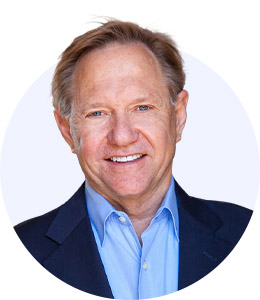“Grace, not perfection.” This statement (which also happens to be the title of one of my favorite books by Emily Ley) was sent to me by Allyson W. Anderson, the executive director of Escambia County Healthy Start Coalition. She had read my column that mentioned forgiveness as a value. Allyson sent me a photo from a recent retreat they did, and forgiveness is listed on a visual they created. The team developed it.
I also received an email from Dr. Chris Reilly about the same column. Dr. Reilly is an industrial psychologist and consultant with Sperduto & Associates. Their company helps organizations with selection and development of talent. This leads to better workforce retention. (In our practice at Healthcare Plus Solutions Group, we find selection and retention go hand in hand.) He also shared that forgiveness is one of their listed values.
We need grace and forgiveness more than ever. So many are suffering. Let’s be kind to ourselves and others. The experiences we’ve had over these past three years have left scars that will live on forever. At the height of the pandemic, the fear in workplaces and communities was palpable. Post-traumatic stress disorder in the workplace is a common topic now. Before COVID, when a person passed another person on a walk, it was common to say hello. Today it is more common to not say hello.
In looking at the present and future, my attention has been on the book Bounce: The Art of Turning Tough Times into Triumph by Keith McFarland. It was written in follow up to his number-one Wall Street Journal and New York Times bestseller, The Breakthrough Company: How Everyday Companies Become Extraordinary Performers, which came out a year earlier. Breakthrough outlines what companies do to successfully grow.
If I like a book, I tend to follow up with authors and hired Keith to work with my company around the time he was writing this book. He was so helpful. Unfortunately, just as Breakthrough was gaining positive attention, the 2008 financial meltdown occurred. Companies went from “how to grow” to “how not to close.” Keith then wrote the book Bounce—as in “how a company bounces back.”
In the book, there is a graphic called the Valley of Despair. Keith demonstrates the normal emotions we go through as bad things happen. The financial meltdown sparked some of the same emotions businesses faced as the pandemic came about. First, there is disbelief about what is taking place. This is followed by thoughts of Will this last?, emotions like anger and frustration, bargaining, and eventually, despair. Some may think of the Valley of Despair in terms of hitting rock bottom.
I was fortunate to hear Dan Collard share the work in Bounce at a recent national conference by Ovation Health. After the Valley of Despair is reached, comes the initial step for bounce back, termed “the new reality.” Then come “uninformed optimism,” “devil in the details,” and “informed optimism,” then continued actions to achieve the desired outcomes.
Dan shared something from the book I thought was interesting: There are two primary emotions that keep organizations from bouncing back. Those are denial and nostalgia. Denial is one we hear a lot about. It is the inability to accept the facts. Nostalgia is the one that hit home. I love to live in the past—the good old days. I know it is okay to remember the past. It is not good to live in the past when things need to move forward.
I bought an old car years ago. I bought it online and had it flatbedded to my house. It was neat until I got in it to drive. Driving a car without power steering is hard. Add in no power brakes and no air conditioning…and you get the point. If any of you are looking for a 1950 Ford Woody, let me know. That feeling of nostalgia quickly moved to reality.
Organizations get nostalgic too. They long for “the way it used to be,” from how people paid for service to how people used the product to how employees worked. Change is hard. Many years ago, I was in line at a store in an airport. Some of the people were paying with credit cards. At the time, they had to use a device with carbon paper and get the customer to sign a copy for the purchase. It took a while. I even mentioned to the person in front of me how these people were slowing things down. Then I watched him pay with a credit card. I missed the opportunity to keep my mouth shut.
Today it is the opposite. Now, some places won’t accept cash. Things change. Last week I went into a store at an airport, and to open the gate to get in, I had to place my credit card in a slot. I then found what I was looking for and walked out through a designated space. My purchase was automatic.
The same kind of change has happened in healthcare. Now we have telehealth, at-home test kits, and so forth. Things are very different from how they were just a few short years ago.
I miss lots of things that I can recall from days gone by. I can also view them with rose-colored glasses. However, to keep the momentum going, accepting change is essential. I present and write on change a lot. Dr. Jay Kaplan has a quote that resonates: “I like to change. You go first.”
A few tips on change:
- Hold up the mirror. Think of a bar graph with two bars that measure how you handle change. One is labeled defiance and one is compliance. Which bar is taller? The higher the compliance bar, the better things will be at work.
- Realize things will be hard at first. I remember when iPhones first came out. My friend Jim was excited to get one of the first ones. After he got it, I asked him how he liked it. He said he did not. A few weeks later, he would have refused to give it up. Do not be quick to exit new tools, methods, and procedures. We all likely know someone who said they did not like something and then learned they had not tried it. They just projected they did not like it.
- You may recall the saying, “No pain, no gain.” This, of course, is not true 100 percent of the time. However, when something is new, there is pain. As our experience increases, the pain decreases.
- Change “new normal” to “now normal.” This is another “Dan-ism” (Dan Collard). It helps us see that what right now seems normal will also likely change.
- Be kind to yourself and others. As Allyson reminded me, “Grace, not perfection.”
We are consistently bouncing. Keep yourself replenished by taking care of you. An inflated ball bounces back better. So does a replenished person.







